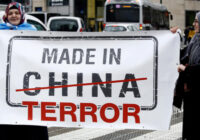The decline of US public diplomacy efforts in Indonesia has created a vacuum that China may rapidly fill. The defunding of Voice of America (VOA) and the shutdown of the United States Agency for International Development (USAID) programs mark a significant shift in the country’s engagement with the world’s largest Muslim-majority democracy. Without these longstanding pillars of American soft power, Indonesia is experiencing a growing reliance on alternative global partnerships, most notably with China. This shift is reshaping Indonesia’s information landscape, development priorities and foreign policy considerations, as Beijing leverages its expanding influence further to integrate itself into Indonesia’s economic and diplomatic spheres.
China’s expanding public diplomacy in Indonesia
Over the years, China has strategically broadened its soft power initiatives in Indonesia across multiple sectors, including education, media, religion and economic development. Through scholarships, media partnerships, religious outreach and infrastructure investments, Beijing has strengthened its influence, which could expand with the gaps left by the US
China has actively engaged with Indonesia’s academic institutions by providing scholarships for Indonesian students to study in China and funding research collaborations. These partnerships allow Beijing to connect with Indonesia’s intellectual circles, shaping discussions on economics, governance and international relations to align with China’s interests.
With the shutdown of VOA, the void in independent US-aligned media coverage would allow China to expand its media presence. Chinese state-run media outlets such as Xinhua have increased their footprint in Indonesia through content-sharing agreements and journalist exchanges. These efforts enable Beijing to steer public discourse in ways that promote its geopolitical narratives and economic ambitions. Some Indonesian media that have collaborated with China are now avoiding critical news on China.
In addition, China has deepened its engagement with Indonesia’s influential Muslim organizations, including Nahdlatul Ulama (NU), Muhammadiyah and the Lembaga Persahabatan Ormas Islam (LPOI). During Ramadan this year, for instance, events such as the tadarus futuristik (futuristic Quran recitation) and iftar gatherings, China has actively participated in religious discussions, seeking to counter concerns about Beijing’s treatment of Uyghur Muslims while reinforcing China’s diplomatic and cultural presence in Indonesia.
China’s growing investments in Indonesia under the Belt and Road Initiative (BRI) have cemented its key development partner role. The withdrawal of USAID programs, which once funded health, education and anticorruption initiatives, has left an economic gap that Beijing is eager to fill. China will likely strengthen its presence even more in Indonesia by offering infrastructure investments, financial aid and development funds.
China’s expanding public diplomacy efforts serve multiple strategic objectives. By strengthening its influence in Indonesia’s educational, media and religious sectors, Beijing is shaping narratives that favor its policies, particularly regarding how its economic presence in Indonesia would benefit the country and human rights issues, like those in Xinjiang. The results of this approach are evident in Indonesia’s reluctance to criticize China’s human rights policies. While Jakarta has been outspoken in its condemnation of Myanmar’s persecution of the Rohingya and Israel’s treatment of Palestinians, it has remained largely silent on Beijing’s actions in Xinjiang. This selective advocacy reflects China’s successful diplomatic engagement and economic leverage over Indonesia’s decision-making on global human rights issues.
Indonesia’s Future in an evolving geopolitical landscape
As China deepens its presence in Indonesia, its narratives and strategic priorities are becoming more ingrained in Indonesian society. This shift can potentially reshape Indonesia’s long-term foreign policy stance and public perception of global power dynamics. While economic cooperation with China offers clear benefits, it raises concerns about Indonesia’s ability to maintain independent foreign policy, particularly regarding human rights or any other issues pertaining to China, including Beijing’s growing assertiveness in the South China Sea.
With the US retreating from its traditional soft power engagements, Indonesia faces a critical juncture. The growing reliance on China for economic, media and diplomatic engagement presents opportunities and challenges. While strengthening ties with Beijing may yield short-term gains, it also requires careful consideration of Indonesia’s broader strategic interests. As China continues advancing its public diplomacy efforts, Indonesia must weigh the long-term implications of its increasing dependence on Beijing.
To respond, the US should reinvigorate its public diplomacy initiatives in Indonesia. Reconsidering defunding for VOA and USAID programs would help reestablish American engagement in critical sectors such as media, education and governance. Expanding scholarships, cultural exchanges and research collaborations with Indonesian institutions can provide alternative avenues for intellectual and diplomatic cooperation.
Furthermore, reinforcing economic partnerships through infrastructure investments and trade agreements would demonstrate a long-term US commitment to Indonesia’s development, providing Jakarta with more options beyond Beijing’s initiatives.
One thing remains clear: the geopolitical landscape in Indonesia is evolving, with China’s influence set to grow even further. How Indonesia navigates this new reality will determine its place in an increasingly multipolar world.
[Liam Roman edited this piece.]
The views expressed in this article are the author’s own and do not necessarily reflect Fair Observer’s editorial policy.
Support Fair Observer
We rely on your support for our independence, diversity and quality.
For more than 10 years, Fair Observer has been free, fair and independent. No billionaire owns us, no advertisers control us. We are a reader-supported nonprofit. Unlike many other publications, we keep our content free for readers regardless of where they live or whether they can afford to pay. We have no paywalls and no ads.
In the post-truth era of fake news, echo chambers and filter bubbles, we publish a plurality of perspectives from around the world. Anyone can publish with us, but everyone goes through a rigorous editorial process. So, you get fact-checked, well-reasoned content instead of noise.
We publish 2,500+ voices from 90+ countries. We also conduct education and training programs
on subjects ranging from digital media and journalism to writing and critical thinking. This
doesn’t come cheap. Servers, editors, trainers and web developers cost
money.
Please consider supporting us on a regular basis as a recurring donor or a
sustaining member.
Will you support FO’s journalism?
We rely on your support for our independence, diversity and quality.











Comment